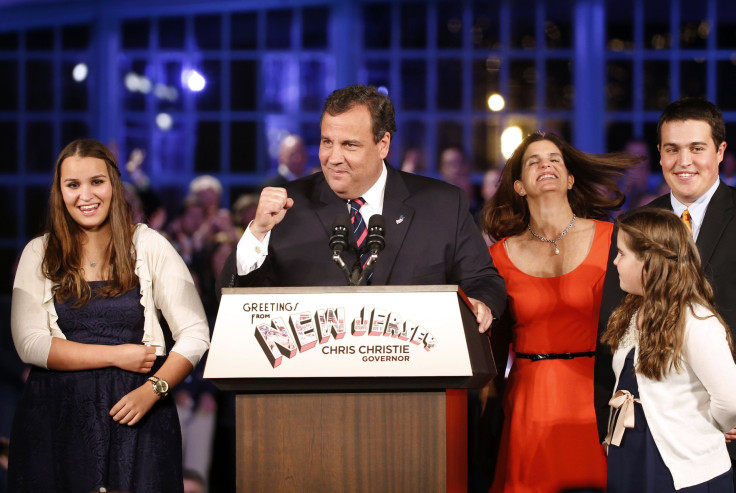Chris Christie Offers Tangible Leadership, In Contrast To Deadlocked Politicians In DC

While I was watching re-elected New Jersey governor Chris Christie give his victory speech Tuesday night, I was thinking about a conversation I overheard last week on the New York-to-Washington D.C. train. Two young professional men (with tablets) were talking about D.C. in a way that was remarkably similar to Christie’s speech. I realize it’s a teeny-tiny data point, but perhaps Christie is onto something when he stresses that he can get things done.
To set the stage: it’s the 6:45 p..m. train from Penn Station in Manhattan (the regular regional train, not the pricey Acela). Two young men, attired in shirts and ties (but not quite important enough to rate traveling on Acela), sat behind me.
Man #1 started the conversation with “I hate going to D.C.” Man #2’s response: “Me too.”
Then Man #1 continues, “We just go to meetings and nothing ever gets done. People talk and talk, that’s all. I hate it.”
Man #2 (in a frustrated tone): “And there’s Obama.” Man #1 (groans): “Yeah.”
Man #2: “I don’t think Obama does anything. He talks a lot, but he doesn’t get anything done. Maybe he just doesn’t care.” Man #1: “That would explain a lot …. (moans) God, I hate going to D.C.”
Let’s put the pieces together. Here are two young males, probably business-school or tech grads, working in New York. You know, New York, where buildings are always going up or coming down, and people are buzzing through the streets. Things happen there.
For these men, going to meetings in D.C. is like hitting a wall of goo. Nothing much happens when you’re stuck in goo (think of the dinosaurs in the La Brea tar pits in Los Angeles).
But Chris Christie, widely expected to run in the presidential primaries, has the ability to talk about real things that he’s accomplished, and that’s right on target for these two fellows on the train.
Republican presidential contenders like Rand Paul, Ted Cruz and Marco Rubio should take note: Voting for or against something, or speechifying on the Senate floor is not as powerful as actually rebuilding disaster-hit communities or reforming the civil service pension system. It’s a matter of the tangible being more powerful than the theoretical.
Voting is a theoretical act – it may lead to something tangible, but it’s not tangible in itself. It easily lends itself to disengagement -- the rarefied atmosphere of the Senate floor (combined with a passel of devoted aides) can lead a Senator to think his actions are more important than they really are.
And let’s not forget the image of D.C. as the La Brea tar pit: it’s where Senators Paul, Rubio and Cruz ply their trade. It’s where then-Senator Barack Obama got his first big job.
On the other hand, ordinary people hunger for tangible results: better schools for their children, their taxes under control, and their economy on the rebound. It’s no wonder Obama’s approval ratings are dropping – his very tangible healthcare website is a disaster, and people know it.
Is there also a hunger for someone who’s truly outside the D.C. Beltway? I think the answer is yes. Perhaps it’s because I once lived inside the Beltway for many years, and now live well outside its orbit. You Beltway folks: Believe me, it’s different out here. And "out here" is where the voters are.
Could Chris Christie be the one who can connect with the people "out here" with a message of rolling up his sleeves to get tangible results that will make the lives of our nation’s citizens better?
The 2016 Republican primary could be transformational – do we go with the tangible or the theoretical candidate? Only time will tell.
Joanne Butler is a graduate of the Kennedy School of Government at Harvard University and a former professional Republican staff member at the U.S. House of Representatives Ways and Means Committee.
© Copyright IBTimes 2024. All rights reserved.





















